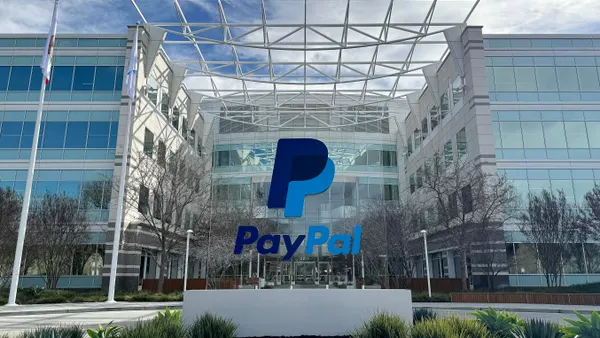Dive Brief:
- In a letter to the World Bank Group this week, nine industry groups, including the Electronic Transactions Association and the Payments Leadership Council, expressed their “strong support” for the World Bank Group’s digital public infrastructure (DPI) initiatives, but expressed concern about DPI policies that don’t “adhere to international guidance and best practices.”
- The letter outlined multiple principles to guide the World Bank’s approach to developing the infrastructure, including worldwide payment inoperability, preserving private sector access to markets, data security and privacy and incorporating public-private partnerships, according to the Monday letter.
- “Policies that unfairly exclude qualified global firms potentially threaten competition, innovation and the opportunity to accelerate and democratize digital inclusion,” the letter to World Bank Group President and former Mastercard CEO Ajay Banga said. “In addition, exclusionary practices can create new, longer-term risks, such as emerging cybersecurity threats, to consumers.”
Dive Insight:
The World Bank defines DPI as the digital architecture that includes digital identification, digital payments and data sharing to facilitate digital services across the private and public sectors.
The trade association group, also including the Global Data Alliance and the U.S. Chamber of Commerce, underscored their “strong support” for the World Bank’s development of a digital framework that aids payment systems modernization and digital identification efforts. But the letter stressed perils too.
“As countries move forward in developing and implementing DPI, we encourage the World Bank and its members to guard against digital fragmentation, exclusionary conduct, fraud and cyber threats. Moreover, DPI initiatives should be economically sustainable with opportunities for firms to create value from such digital technologies, thereby fostering competition,” the letter said.
While the letter emphasized potential pitfalls in pursuit of DPI, the World Bank has been collaborating with others to improve cross-border payments. The letter noted the foundation laid last year by the international G20 organization’s report for “advancing financial inclusion and productivity gains through digital public infrastructure.”
The group of organizations said they were sending the letter now so it could be taken into consideration ahead of the World Bank and International Monetary Fund’s annual meetings and the G20 meetings of finance deputies, finance ministers and central banks, all later this month.
In January 2023, the World Bank Group, along with the International Monetary Fund, the Committee on Payments and Market Structures and the Innovation Hub, wrote a report reassessing the global payments infrastructure including better transparency, inclusivity, speed and safety. However, the report cautioned that creating governance for such a system and maintaining competition would be challenging.










